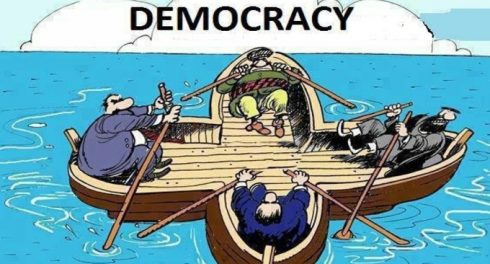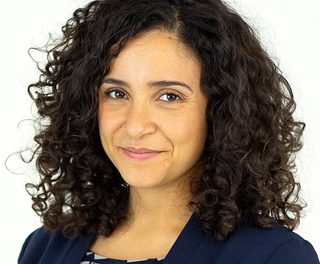Highlights:
- Highlights from the 5th OGP Global Summit
- Busting myths on open contracting
- Fighting corruption “quietly”
- Inequality and tax havens
- Open data, women and AI
- “Going vertical” for accountable governance
- Are you on track? Demonstrating outcomes
In case you missed it…
Highlights from the 5th OGP Global Summit

The glitterati of open government were in Tbilisi, Georgia last week for the Open Government Partnership Global Summit. After the effects of Georgian wine have worn off, what progress do we see? The risks of civil war between illiberal democrats and authoritarian kleptocrats in Europe (covered in The Economist’s exploration of an open future) presented quite the backdrop. Unsurprising then that civil society participation (amid growing clampdowns) was a prominent topic, with OGP CEO Sanjay Pradhan calling for the need to empower citizens to create more accountable governments. Achim Steiner, Administrator of UNDP agreed and stressed that civil society and government collaboration in the open government movement is crucial to achieving the SDGs. Read OGP’s press release for the official overall take.
How can government-civil society collaboration translate into increased transparency and improved lives? Maria Baron draws lessons from her research in Latin America. Perhaps a topic to explore via the OGP Multi-Donor Trust Fund introduced in Tbilisi– a $12-million portfolio managed through the World Bank (deadline for thematic proposals is August 17 so interested parties should be quick!) In other sessions, Sophia, the first humanoid robot, graced the stage, plus we had welcome relief from “manels,” and the NextGen OGP stood out for getting everyone on their feet (they must have read the OpenGov Hub Great Events Guide). All inspiration for your submission to the next Summit to be hosted by Canada with a focus on inclusion, feminism and participation.
Busting myths on open contracting
Another hot topic at the OGP Summit? Contract transparency. The Open Contracting Partnership offered evidence-based arguments to counter myths on keeping government contracts confidential, and the exiting EITI Board Chair, chimed in with an OpEd making the case for disclosure of terms in the important oil/gas sector. Beyond the anti-corruption and building trust narratives, disclosure can help counter the spread of misinformation and even lead to better functioning markets – all informing Transparency International’s recommendations for incorporating open contracting in OGP national action plans.
Fighting corruption “quietly”
A youth library project in Haiti demonstrates the effectiveness of “quiet” anti-corruption initiatives – creating an example of transparency, such as publishing all donations, without framing themselves explicitly as fighting graft. “These projects serve as Trojan horses to help anti-corruption measures slip past gatekeepers and power brokers, and perhaps stand a greater chance of surviving and planting the seeds of change”, say Sabina Robillard and Louina Robillard.
FICS Closing Space Funding Trends
The Funders’ Initiative for Civil Society (FICS) is seeking your help to identify broad trends and opportunities for grant making in response to closing civil society space around the world.
The survey is for donors only, but we would encourage you to forward it to peers that you think would be interested in contributing. The survey will remain open until 24 August 2018. Take the Survey
Inequality and tax havens
Sure tax havens allow the wealthy to avoid taxes but Ben Batros demonstrates that the impact is deeper and more troubling. He calls for new thinking on the role of tax havens in an evolving global economy. Can the European Union expect radical thinking from the Big Four (accounting firms) as they turn to them for policy advice on tax avoidance? At least they should be familiar with the tricks of the trade. Meanwhile, Andres Knobel recaps the reasons behind businesses stiff resistance to make their country by country tax reports public.
Another milestone on beneficial ownership transparency in the UK – a draft bill has been passed seeking to reveal owners of overseas companies buying property in the country. Lawmakers may have been inspired by Miami, where a rule changes does seems to be limiting paths for dirty money. A case at last of transparency + active oversight = behaviour change?
Open data, women and AI
Is open data working for women in Africa? Not much. According to the World Wide Web Foundation’s research, barriers have limited the potential of open data in improving the lives of women in Africa. These include lack of sex-disaggregated data, digital divide, closed data culture and lack of collaboration on gender and open data.
Last week we featured how artificial intelligence can be a game changer for nonprofits – one way is through extracting deeper meaning from data about their programs, supporters and beneficiaries. But where to start? Charity Digital News compiled some helpful resources for UK charities.
Podcast of the week: In episode 30 of Fran Perrin: Philanthropy & Transparency, Rhod chats to Fran Perrin- founder and Director of the Indigo Trust, founder of 360 Giving, former government policy advisor and member of the famously philanthropic Sainsbury family – about promoting transparency in philanthropy.
“Going vertical” for accountable governance
Good governance is a messy problem and many good governance projects fall short. So what went right with the Nigeria’s Voice to the People project? Christian Aid’s Temitope Fashola and Charles Gay argue going “vertical” resulted to remarkable gains in citizen engagement and government responsiveness.
Citizen-state relationships are also being shifted by digitization. So suggests new research into the impacts of Aadhaar digital ID on governance in India. Meanwhile Aruna Roy and Nikhil Dey decry threats to transparency and accountability embodied in proposed changes to Right to Information law.
Are you on track? Demonstrating outcomes
For the funder community, Fay Twersky and colleagues offer new guidance regarding the challenge of demonstrating outcomes. You may want to pair that reading with watching highlights from ODI’s workshop on organizational culture for learning and adaptation.
In terms of working with grantees, survey findings from the Center for Effective Philanthropy suggest that nonprofit leaders’ hopes for boosting organizational diversity are not yet matched by reality. This suggests a role for foundations – not least in raising the issue (42% of nonprofit CEOs report that their organization’s foundation funders have not discussed diversity issues with them.)
Talk less, email more. Such is life in a communal work space according to new research. It seems fewer walls does not exempt you from loneliness. However, perhaps the researchers underestimate the potential aid to collaboration across teams/orgs – something the TAI team can attest to in our OpenGov Hub experience.

We are excited to welcome Edith Mecha to the TAI team. Edith is an Atlas Corps Fellow from Nairobi, Kenya who will be leading our communications work.
TAI spotlight
- MacArthur Foundation Announces a New Series of Grants to Promote Transparency and Accountability in Nigeria
- How We Practice Effective Philanthropy: Resources and Guides from the Hewlett Foundation
- George Soros Bet Big on Liberal Democracy. Now He Fears He Is Losing
In conversation with…

MacArthur Foundation staff to review the closing civic space survey findings and discuss evaluation and grant management. More updates to follow.
Calls: Proposals, papers, speakers and course invites
- Hivos Consultancy: Open Contracting Benefits for Government and the Private Sector – July 31
- NOW-Us! Award 2018– July 31
- Facilitating the Advancement of OGP’s Thematic Priorities– August 17
- Money Trail Grants – July 15, September 30, November 15
- FAT* 2019 Call for Papers – August 23
On the calendar
- On Think Tanks: Intro to Monitoring, Evaluation and Learning (MEL) About Policy Influence(webinar) – July 25
- The Empathic Facilitator: Leading a Transformative Group Process– July 28-29 (New York, NY)
- Civic Tech: India 2018– August- November (Bangalore, Delhi and/or Mumbai, India)
- 4th Annual African Tax Research Network Congress – September 10-12 (Morocco)
- 3rd Open Data Research Symposium – September 25 (Buenos Aires, Argentina)
- The Future is Open: 5th International Open Data Conference – September 27-28 (Buenos Aires, Argentina)
- European Evaluation Society – Evaluation for More Resilient Societies– October 1-5 (Thessaloniki, Greece)
- Feedback Summit 2018 – October 4-5 (Washington, DC, USA)
- 18th International Anti-Corruption Conference – October 22-24 (Copenhagen, Denmark)
- UN World Data Forum – October 22-24 (Dubai, UAE)
- BigSurv18 – Spain, Oct 25-27 (Barcelona, Spain)
- Public Sector Economics 2018 Conference – Fiscal Openness: Transparency, Participation and Accountability in Fiscal Policies – October 26 (Zagreb, Croatia)
- AEA Evaluation 2018: Speaking Truth to Power– October 29 – November 3, 2018 (Cleveland, OH USA)
- OGP Asia-Pacific Regional Meeting– November 5-6 (Seoul, Korea)
- Canadian Open Data Summit – November 7-9 (Ontario, Canada)
- Data4Good Conference – November 14 (Birmingham, UK)
- Collective Impact Forum Convening – May 14-16, 2019 (Chicago, USA)
- Global Conference on Transparency Research – June 26 – 27, 2019 (Rio de Janeiro, Brazil)


